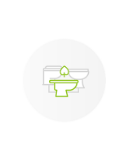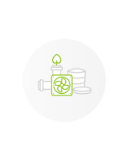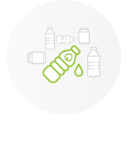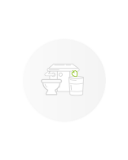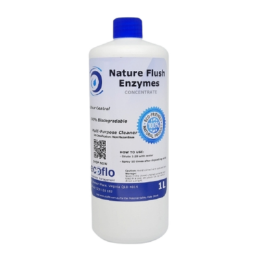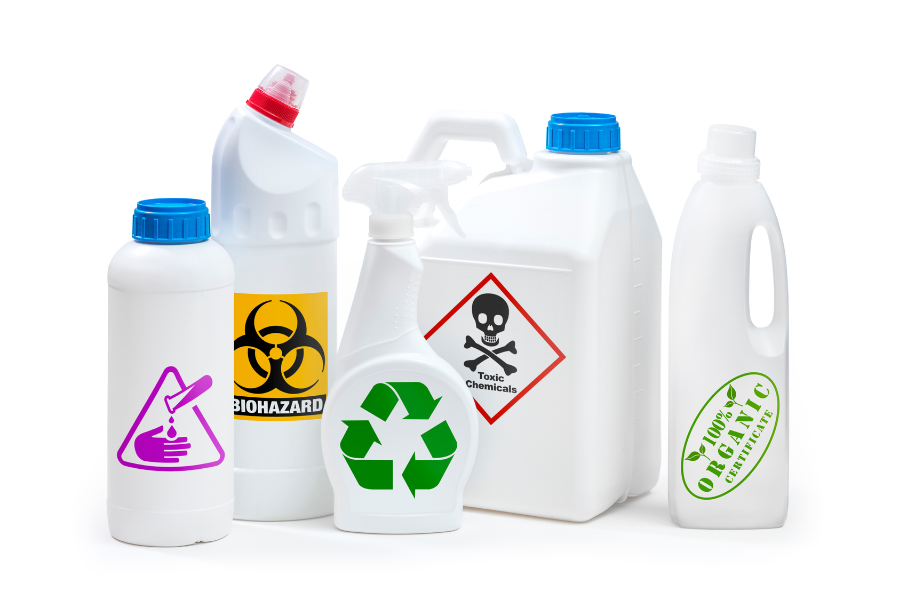
Composting toilets use the natural process of composting to break down waste and transform it into nutrient-rich compost. Inside the compost pile, there are a whole lot of microorganisms that work hard to process the waste, and to keep these guys alive, you have to be mindful when selecting cleaning products to ensure they aren't harmful to the compost. Some cleaners can have adverse effects on the composting process, so to help you maintain a healthy composting system, below are the cleaners to avoid, and the cleaners to use!
Antibacterial or disinfectant cleaners
Cleaners that are formulated to kill bacteria are an absolute no go. While killing bacteria might seem like a good thing, in this case, it isn't. The compost pile is full of beneficial bacteria and you definitely don't want to kill these!
Avoid cleaners containing triclosan, quaternary ammonium compounds (quats), or antibacterial agents like benzalkonium chloride.
Harsh chemical cleaners
Harsh chemicals create toxic conditions for compost organisms. They disrupt the bacterial cell membrane, inhibit enzymatic activity, and interfere with metabolic processes essential to composting.
Avoid cleaners that contain harsh chemicals like bleach, ammonia, or sulfuric acid.
Detergents with surfactants
Surfactants are common ingredients in cleaning products that help to break down grease and dirt. Surfactants, even those found in "eco-cleaners", can harm compost organisms and hinder the performance of your composting toilet. On top of this, if the surfactants are non-biodegradable, they can persist in the compost and contribute to environmental pollution.
Avoid cleaners with surfactants.
Alkaline or acidic cleaners (high pH or low pH)
Compost bacteria thrive in specific pH ranges. Cleaning products that significantly alter the pH can disrupt the microbial balance and inhibit the growth of bacteria necessary for composting. Excess alkalinity or excess acidity will harm your compost. Sorry guys, this means no homemade vinegar (acidic) or baking soda (alkaline) solutions! Even if neutral pH balance is achieved, residual chemistry of these ingredients can affect the unique microbiome of your compost.
Avoid cleaners with extreme pH levels.
Petroleum-based or toxic cleaners
Petroleum-based and toxic cleaners are not only harmful to beneficial microorganisms in the compost, but can actually contaminate the compost itself, rendering it unsuitable for soil fertilization and reintegration into the environment.
Avoid cleaners that contain petroleum distillates, solvents, or other toxic chemicals.
Cleaners safe for composting toilets
To maintain a healthy compost pile and ensure your composting toilet is performing at its best, opt for natural, biodegradable, and environmentally friendly cleaners that don't contain any of the nasties listed above.
Remember, the goal of composting toilets is to create a sustainable and environmentally friendly waste management solution. By using compatible cleaning products, you can contribute to the success of your composting toilet system and maximize the benefits of the compost it produces.
WCTNZ® recommends using Nature Flush | Enzymes - Concentrate 1 Litre (Enzymatic) for all your composting toilet cleaning purposes. Nature Flush | Enzymes - Concentrate 1 Litre (Enzymatic) is a natural, biodegradable and environmentally friendly enzymatic solution that eats away dirt AND adds beneficial enzymes to your compost pile!
WCTNZ® | Waterless Composting Toilets NZ Limited | Copyright 2024 ©






